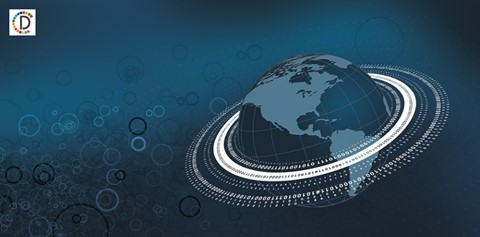UPDATE 2-EU clinches copyright overhaul deal, critics see shortcomings

Negotiators from the EU countries, the European Parliament and the European Commission clinched a deal on Wednesday after negotiations that lasted all day. "Agreement reached on #copyright! Europeans will finally have modern copyright rules fit for digital age with real benefits for everyone: guaranteed rights for users, fair remuneration for creators, clarity of rules for platforms," EU digital chief Andrus Ansip said in a tweet.
The EU executive kicked off the debate two years ago, saying the rules needed to be overhauled to protect the bloc's cultural heritage and make sure that publishers, broadcasters and artists are remunerated fairly. The issue pitted Google, Facebook, Microsoft, Mozilla, other tech companies and even Wikipedia against publishers, among them Germany's Axel Springer, and other creators of content, triggering intense lobbying on both sides.
Lobbying group CCIA, whose members include Google and Facebook, criticised Article 11 which would force Google and Microsoft to pay publishers for displaying news snippets, and Article 13, which requires online platforms such as YouTube and Instagram to install filters to prevent users from uploading copyrighted materials. "We fear the law could harm online innovation, scaleups, and restrict online freedoms in Europe," its vice-president Christian Borggreen said.
Spain and Germany in recent years tried to force Google to pay publishers for taking snippets of their news articles but that backfired after Google News pulled out from Spain and Axel Springer's traffic plunged after it sought to block the search engine. Lawmaker Julia Reda from the Pirate Party also voiced concerns, saying that algorithms in upload filters cannot tell the difference between copyright infringements and legal parodies.
"Requiring platforms to use upload filters would not just lead to more frequent blocking of legal uploads, it would also make life difficult for smaller platforms that cannot afford filtering software," she said. Online platforms in existence for less than three years and with less than 10 million euros in revenues and fewer than 5 million monthly users are exempted from installing upload filters, a concession to German lobbying.
Non-profit bodies, online encyclopaedias such as Wikipedia, and open source software platforms such as GitHub will be able to use potentially valuable data for research and educational purposes without being subjected to the copyright rules. European consumer organisation BEUC expressed disappointment.
"It will become much harder for users to share their own, non-commercial music, video or photo creations online. This reform is not based on the reality of how people use the internet," its deputy director general Ursula Pachl said. The agreement needs approval from the European Parliament and EU countries before it can become law. That is expected to be a formality. (Reporting by Foo Yun Chee; Editing by Susan Fenton and Tom Brown)
(This story has not been edited by Devdiscourse staff and is auto-generated from a syndicated feed.)
- READ MORE ON:
- European Union
- European Commission
- European Parliament
- Women artists
- Make-up artist
- Tattoo artist
- New York Giants
- Social media
- Technology company
- End user
- User profile
- User guide
- Google Ads
- Google Calendar
- Google Home
- Macmillan Publishers
- HarperCollins Publishers Australia
- Fox Broadcasting Company
- Serie A
- Pay television
ALSO READ
JD(S) once again banks on first family members to deliver for party in Karnataka LS polls
A film in Nigeria remembers the Chibok girls abducted 10 years ago, and unites heartbroken families
Feud in IOA continues, 9 EC members ask "unauthorised persons" not to enter headquarters
Entertainment News Roundup: Paramount to enter into exclusive merger talks with Skydance, source says; 'He was ours' - Seattle remembers Kurt Cobain on 30th anniversary of his death and more
CBI arrests 7 members of child trafficking gang










